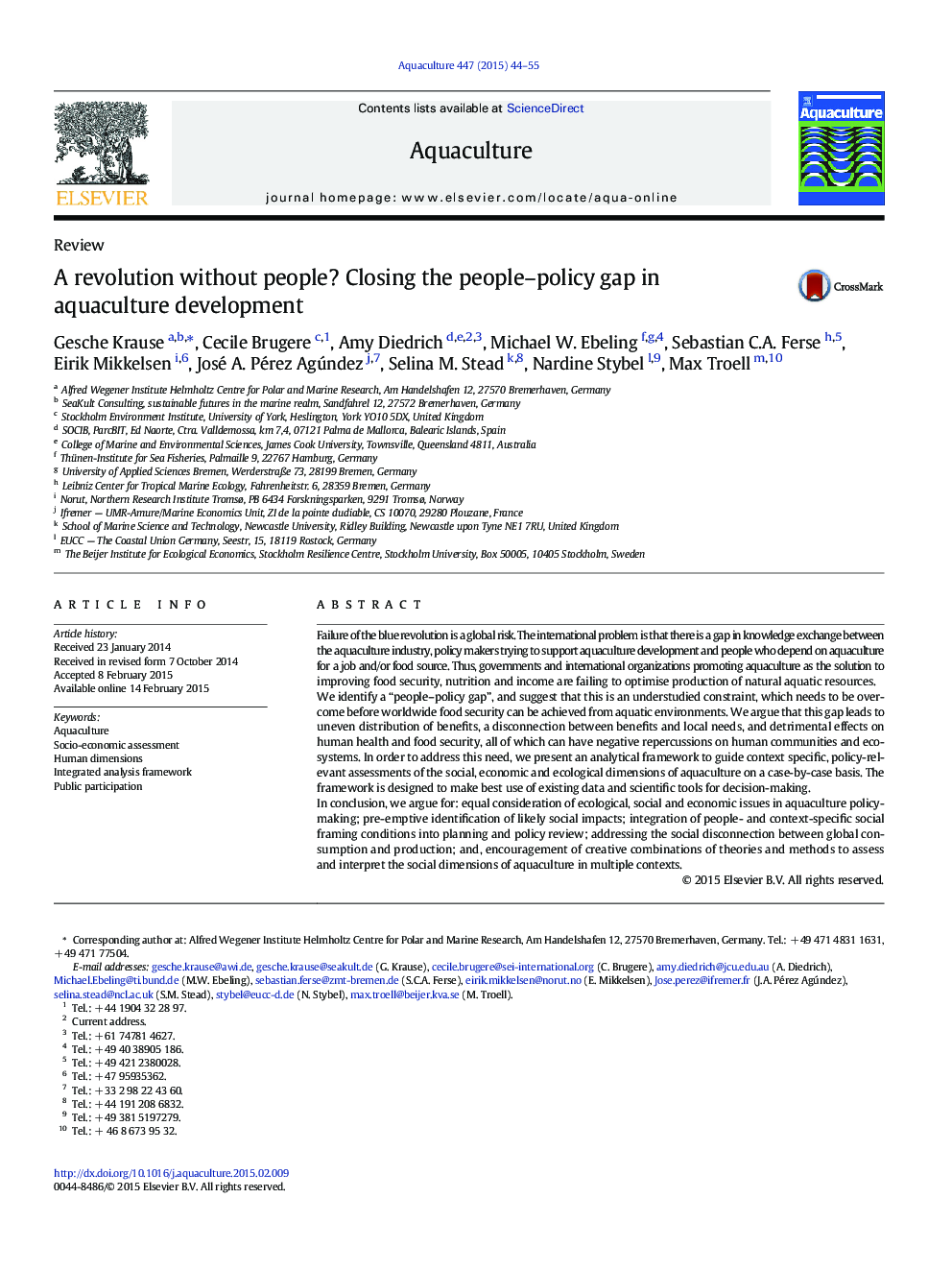| کد مقاله | کد نشریه | سال انتشار | مقاله انگلیسی | نسخه تمام متن |
|---|---|---|---|---|
| 2421590 | 1552840 | 2015 | 12 صفحه PDF | دانلود رایگان |
• Addresses the socio-economic impacts of aquaculture
• Identifies why there is the gap in available knowledge and policies
• Identifying the role of framing conditions for aquaculture development
• Development of multi-dimensional assessment framework
Failure of the blue revolution is a global risk. The international problem is that there is a gap in knowledge exchange between the aquaculture industry, policy makers trying to support aquaculture development and people who depend on aquaculture for a job and/or food source. Thus, governments and international organizations promoting aquaculture as the solution to improving food security, nutrition and income are failing to optimise production of natural aquatic resources.We identify a “people–policy gap”, and suggest that this is an understudied constraint, which needs to be overcome before worldwide food security can be achieved from aquatic environments. We argue that this gap leads to uneven distribution of benefits, a disconnection between benefits and local needs, and detrimental effects on human health and food security, all of which can have negative repercussions on human communities and ecosystems. In order to address this need, we present an analytical framework to guide context specific, policy-relevant assessments of the social, economic and ecological dimensions of aquaculture on a case-by-case basis. The framework is designed to make best use of existing data and scientific tools for decision-making.In conclusion, we argue for: equal consideration of ecological, social and economic issues in aquaculture policy-making; pre-emptive identification of likely social impacts; integration of people- and context-specific social framing conditions into planning and policy review; addressing the social disconnection between global consumption and production; and, encouragement of creative combinations of theories and methods to assess and interpret the social dimensions of aquaculture in multiple contexts.
Journal: Aquaculture - Volume 447, 1 October 2015, Pages 44–55
